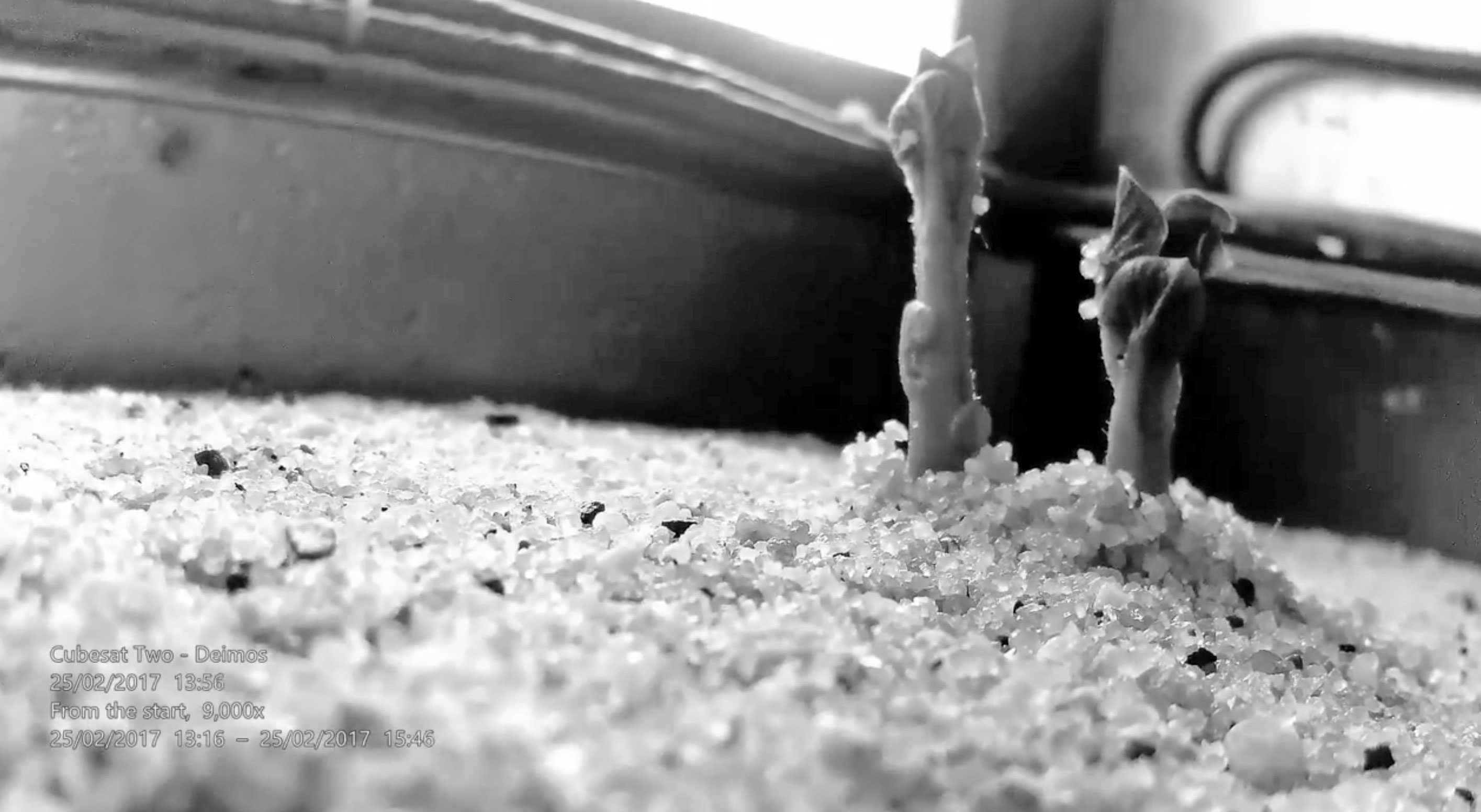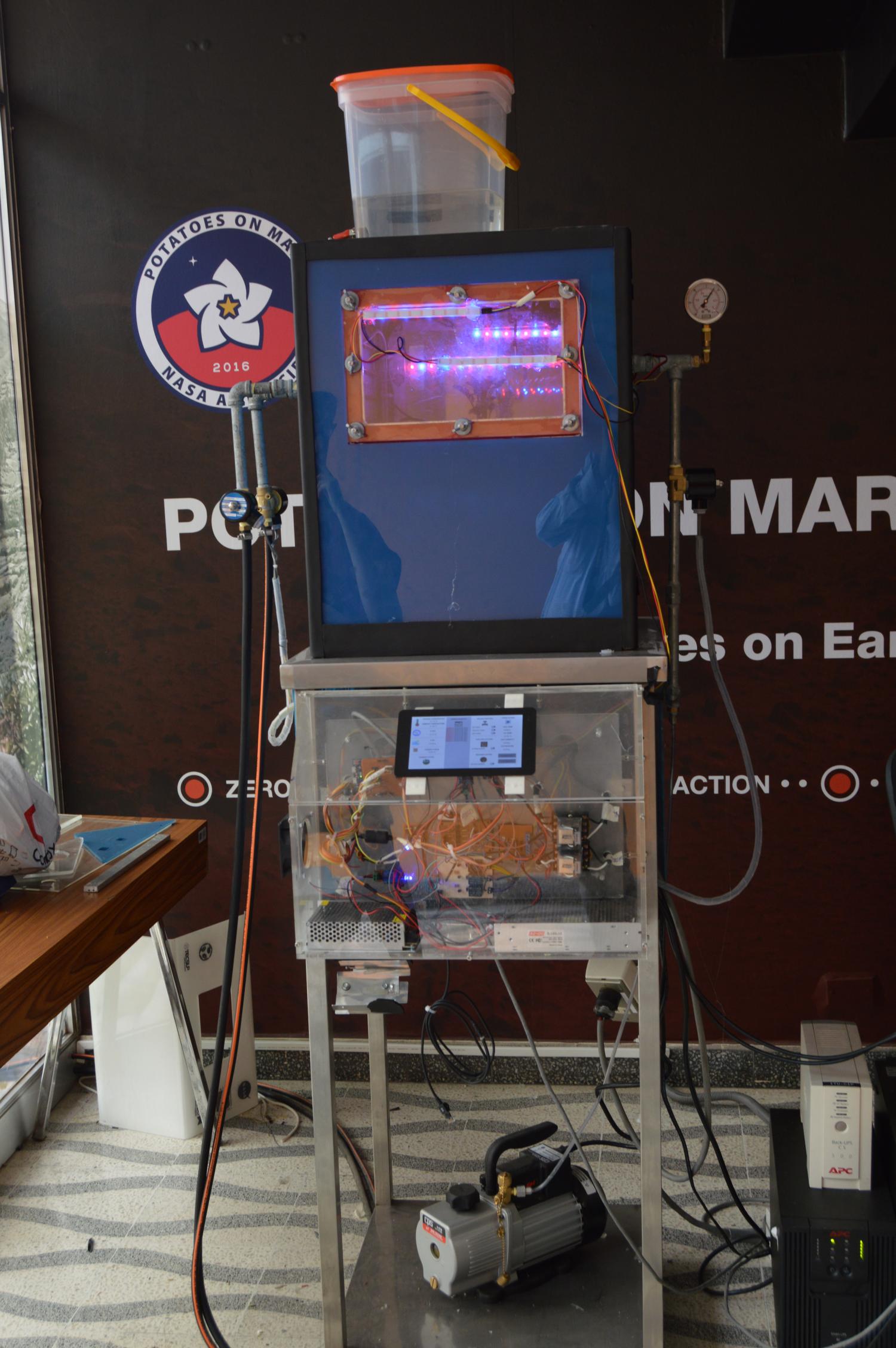Scientists have confirmed the possibility of growing potatoes on Mars

It is possible that someday astronauts will be able to repeat the experiment of the protagonist "Martian" Mark Watney and grow potatoes on a red planet. The International Center for Potatoes (ISC) in Lima has already begun a series of experiments that will help determine whether potatoes can grow in Martian atmospheric conditions, and thus prove that they can be grown in extreme climatic conditions on Earth.
The ISC was founded in 1971 by decree of the Peruvian government. Since its inception, the Center has been committed to reducing poverty and achieving food security in developing countries through research and activities related to the return of potato genetic resources. In addition, the Center’s scientists are developing new varieties of potatoes and other tuberous and root crops and are engaged in managing natural resources in the Andes and other mountainous areas.
')
At the end of 2015, the International Center for Potatoes began working with NASA to try to grow potatoes in conditions close to those of Mars. The project was conceived by the Center in order to understand whether it is possible to grow potatoes on Mars and see how the tubers adapt to extreme conditions similar to those seen in regions suffering from climate change and natural disasters.
The second stage of the ISC experiment began on February 14, 2016, when the tuber was planted in a specially constructed sealed container in Kubsat , a small modular satellite created by staff of the University of Engineering and Technology (UTEC) in Lima based on plans and recommendations provided by the National Aeronautics and Research Department Outer Space Ames Research Center ( NASA ARC ). The preliminary results of the study were very successful.
Inside the sealed environment, the Kubsat provides food and water, regulates temperature and pressure, correlated with the day and night conditions of Mars, as well as the level of oxygen and carbon dioxide. Special sensors constantly monitor these conditions, and the cameras are broadcast live, recording the condition of the soil in anticipation of potato sprouting.

Growing crops in Marso-like conditions is an important stage of the experiment. Scientists are sure: if the crop survives in those tests that it undergoes in a cube, then the potato has a good chance to grow on Mars. Researchers plan to conduct several additional tests to find out which potato varieties will cope with this task best. They want to understand what are the minimum conditions for the survival of seedlings.
But why potatoes, and not any other plant? According to Walter Amoros, the MCC breeder (Walter Amoros), the main advantage of potatoes is their strong genetic adaptability in extreme conditions. The center uses this opportunity to develop modified crops that can endure harsh conditions such as drought or salinization. Thus, small farmers can grow food in marginal areas. Growing potatoes on Mars makes sense also because it is this plant that has the highest energy value and at the same time requires the least amount of space for successful growth among all crops.
One of the best varieties showing the highest salt tolerance was the MCC potato for planting in the subtropical lowlands and coastal areas of Bangladesh with a high concentration of minerals in the soil.
In 2016, the International Center for Potatoes received a soil sample that was as close as possible to the ground surface of Mars. The land obtained from the Pampas de la Hoya desert, located in the southern part of Peru, turned out to be quite dry and salty, but the researchers managed to grow potato tubers in it using fertilized soil.
After these experiments, scientists hope that the following missions to Mars will be accompanied by attempts to repeat already in real Martian soil. To do this, they will have to prepare the soil with a loose structure and a full set of nutrients so that the tubers get enough air and water.
Amoros adds that whatever the consequences of further expeditions to Mars, a good test outcome is good news. Potentially, potatoes can help people survive in extreme conditions on Earth. “The results show that our efforts to develop varieties with high potential to enhance food security in those areas that are or will be affected by climate change are bearing fruit,” he notes.
Source: https://habr.com/ru/post/373243/
All Articles